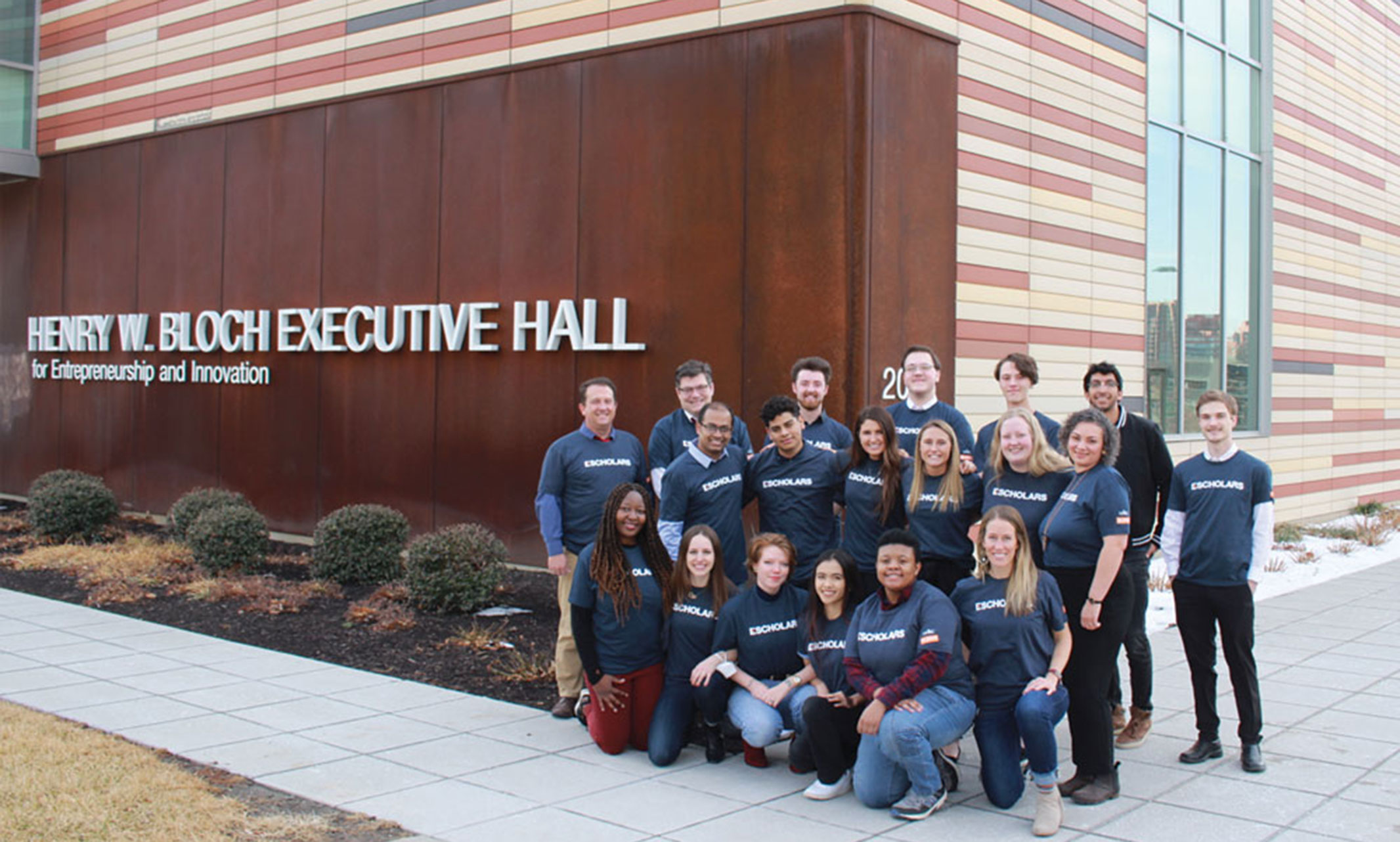The Bloch School’s Entrepreneurship Scholars, or E-Scholars, program has crossed a milestone, now helping more than 300 startup ventures find their footing in the business world.
“The research on how to help startups develop themselves suggests that startups should be treated like scientific experiments,” says Alex Matlack, director of the E-Scholars program. “We don’t tell them to go on their gut. We treat the company like an experiment, which allows them to be open about being wrong about their idea in some ways.”
The scientific approach was well-suited for A.J. Mellot, Ph.D., and his business partner Heather Decker, who went through the program in 2019.
“Heather and I are both scientists by trade, and the E-Scholars program really helped us get aligned with the business side of the things. When we started talking to partners and investors, we had the vocabulary to do so,” Mellot says. “Had we not gone through E-Scholars, I don’t think we could have done that.”
E-Scholars focuses on early-stage business ventures. Most participants begin the program in the idea stage, seeking to build their dreams into a business plan. In some cases, however, they have already launched their companies and are looking to create a plan for systemic growth.
The program supports ventures from all industries and technology types. Since its launch in 2011, E-Scholars has supported businesses developing mobile apps, enterprise software and medical devices, consulting businesses, retail, restaurants, fashion, nonprofits and education.
Participants spend the first months of the program testing their business hypothesis through customer interviews, product testing and prototyping. Following that, participants take part in “mentorship madness.” Matlack says to think of it like speed-dating for business relationships.
“We have them meet with 10 mentors and basically have the same conversation every 15 minutes. By the end of the day, you can already see their confidence growing. That’s when the fun really starts,” says Matlack.
With the help of the program, Mellot and Decker expanded and fleshed out their bioscience company, Ronawk, which has developed a technology to allow for rapid cell growth to be used for tissue and organ transfers. The company’s goal is to expand a patient’s healthy cells to engineer organoids, or grafts, that can be used in lifesaving surgeries.
“This program allowed us the opportunity to meet with so many other local businesses that were just starting, and we got to know a lot of peers and were able to support them from the beginning,” Mellot says. “Everyone in the class was supporting each other, and we have so many dear friends that we continue to champion.”
Since graduating from the program, Mellot says Ronawk has grown from Decker and himself to seven employees, with a likelihood of further expansion.
“We’ve grown our revenue every year. We’ve really started to see a lot of attention,” Mellot said. “We are engaged with over 70 companies that are either trying our products or piloting them.”

